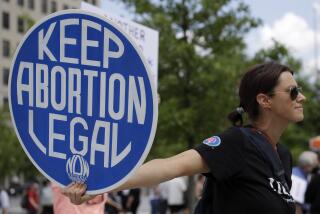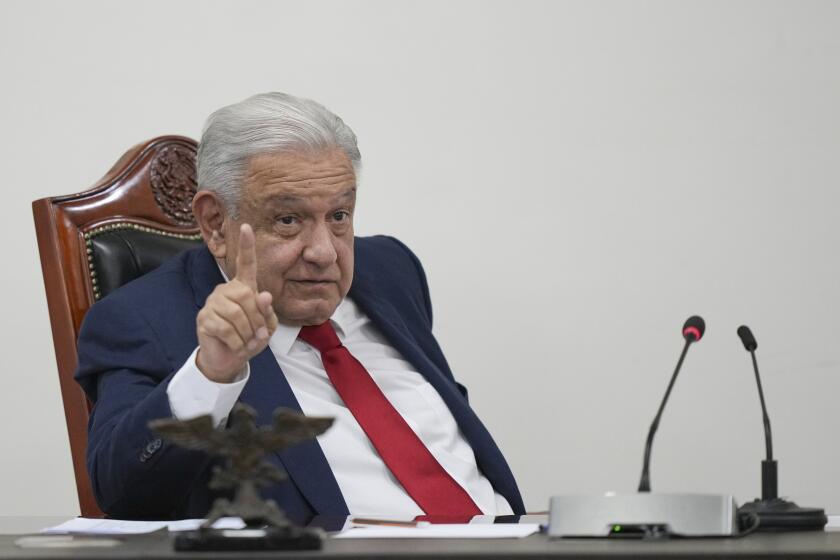With West Caught Short, Russia to Reopen Taps
Natural gas supplies to Europe dipped sharply Monday amid the continuing conflict between Russia and Ukraine, but Moscow said it would significantly restore exports as early as today to prevent other countries from being held hostage to the price dispute.
With many European nations reporting decreases in their gas deliveries as Russia attempted to cut off supplies to middleman Ukraine, the Organization for Security and Cooperation in Europe appealed to the two former Soviet republics to “explore, in a constructive manner, all options that could bring about a mutually satisfactory solution.”
Moscow moved to ease the crisis by announcing it would restore about 95 million cubic meters of the 120 million a day it began withholding from Ukraine on Sunday, emphasizing that the gas was intended for European buyers farther down the pipelines, not Russia’s neighbor.
Here in Ukraine -- which has been facing the gloomy choice of losing crucial Russian gas or paying the fourfold price hike demanded by Moscow -- the pro-Western government of President Viktor Yushchenko insisted it had cut into its own shrinking gas reserves to ensure that Europe would get its share.
Ukraine currently pays about one-fourth what most European customers are charged for Russian gas, in exchange for piping European supplies through its territory.
“Since Jan. 1, Ukraine has taken all the gas transit expenses of transfer to Western Europe onto its own shoulders, without receiving a single cubic meter of Russian gas as payment for this transit,” Yushchenko said after meeting with the ambassadors of the European Union, the United States and Japan.
Moscow said Monday that it could prove that Ukraine had stolen $25 million worth of gas intended for elsewhere in Europe on the first day of the cutoff.
“Having come across the undeniable fact of theft of our gas from the export pipe and in order to ensure energy security for Europe, we have decided to take all possible measures to ensure that Western consumers continue to receive gas in accordance with the contracts in effect,” said Alexander Medvedev, general director of Gazexport Ltd., the export arm of Gazprom, Russia’s giant, state-controlled energy producer.
Gazprom officials said they would begin pumping the additional 95 million cubic meters a day toward Ukraine, though they warned that the gas was intended for elsewhere in Europe.
“The necessary instructions have been issued, and I think that we will be able in the near future to make the system perform in accordance with the export contracts,” Medvedev said.
Many European nations reported shortfalls Monday. Hungary said imports had dropped 40%. France, Austria and Slovenia estimated the dip at about one-third of usual supplies.
There are several possible explanations for Monday’s shortages. One is that Kiev was siphoning off gas for itself, as Russia alleges, and justifying it as a fair exchange for allowing Russia to transport gas to Europe through its territory or as supplies due under a separate contract with Turkmenistan, which ships through Russia.
Another possibility is that Moscow has cut or diverted shipments beyond Ukraine’s share in an attempt to focus Europe’s ire on the government in Kiev, which has attempted to move out of Russia’s shadow and into the arms of NATO and the EU.
“Somebody’s lying,” Yevgeny Gavrilenkov, chief economist with the Troika Dialog investment firm in Moscow, said in a telephone interview. “The gas cannot disappear by itself.”
But in fact, huge quantities of gas have “disappeared” between Russia and Ukraine in the past and mysteriously reappeared bearing the fingerprints of powerful business interests in both countries. Ukraine wound up with about $1 billion in questionably accumulated Russian gas in the mid-1990s.
The current price war was touched off in the spring, when nearly 8 billion cubic meters of Russian gas that Gazprom said was bound for Europe was discovered in Ukrainian storage reservoirs. Russia insisted the gas be shipped on to Europe, and when Ukraine refused, Moscow announced that it was subtracting the value of the stored gas from transit fees it owed for the use of Ukrainian pipelines.
Investigators hinted darkly of lucrative resale schemes to capitalize on the difference between the cheap price Ukraine paid for the gas and the much larger sums it could fetch in Europe. However, no charges were brought. Yushchenko’s government said any such schemes, if they existed, were linked to the past regime of President Leonid D. Kuchma.
One upshot of these events was an agreement to shift to clear cash contracts for gas and transportation. But talks stalled in December when Russia said it would seek payments that were comparable to what it charges other European customers, roughly four times what Ukraine in effect had been paying under the gas-for-transit system.
“Given that the Ukrainians had already done this before” -- removed gas from the export pipeline -- “I cannot exclude completely that they’re doing this now,” said Gavrilenkov, the economist. At the same time, he said, Russia’s decision to charge Ukraine $230 per 1,000 cubic meters, while allowing former Soviet ally Belarus to pay $47, “smells of politics.”
More to Read
Sign up for Essential California
The most important California stories and recommendations in your inbox every morning.
You may occasionally receive promotional content from the Los Angeles Times.










